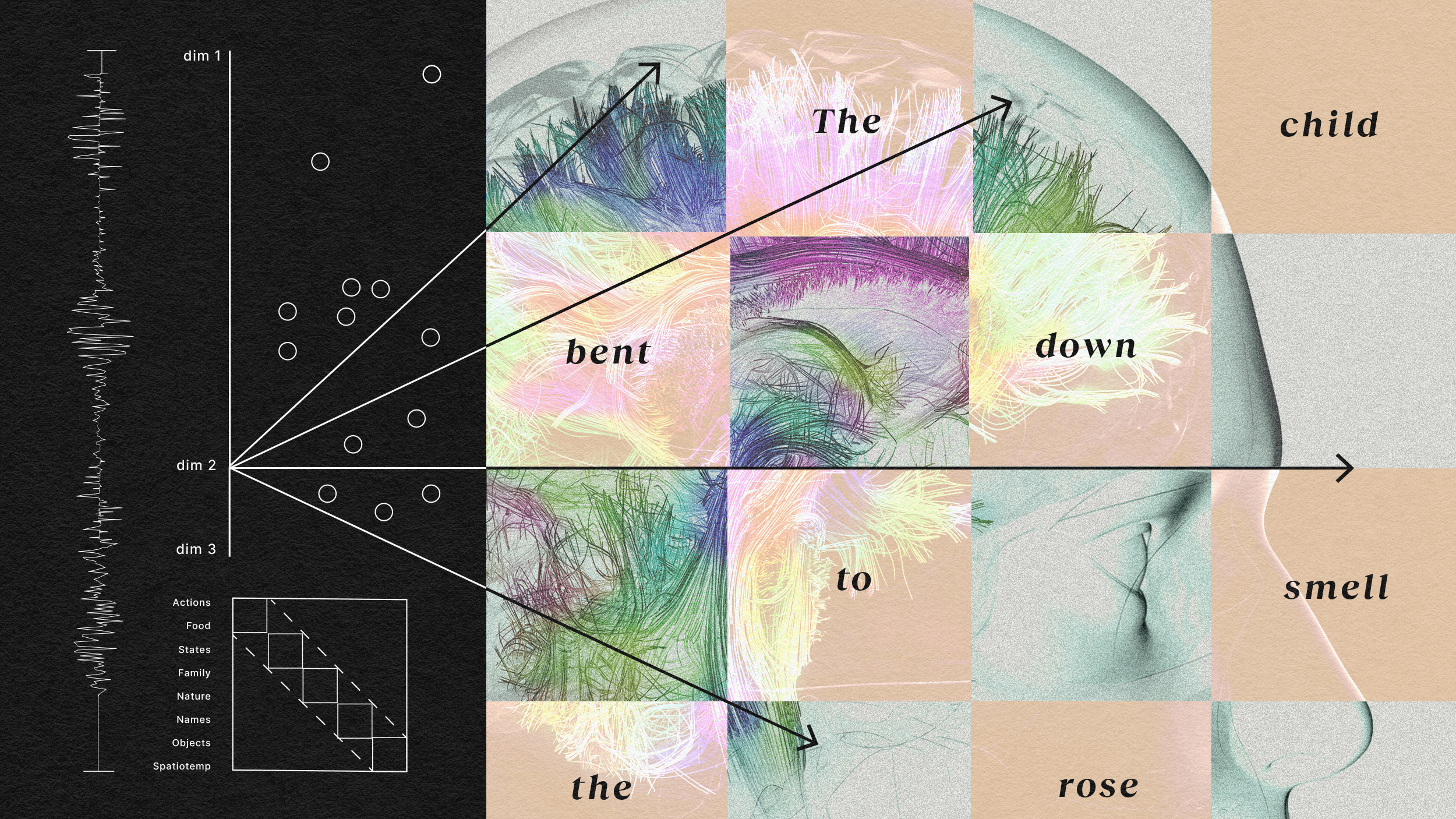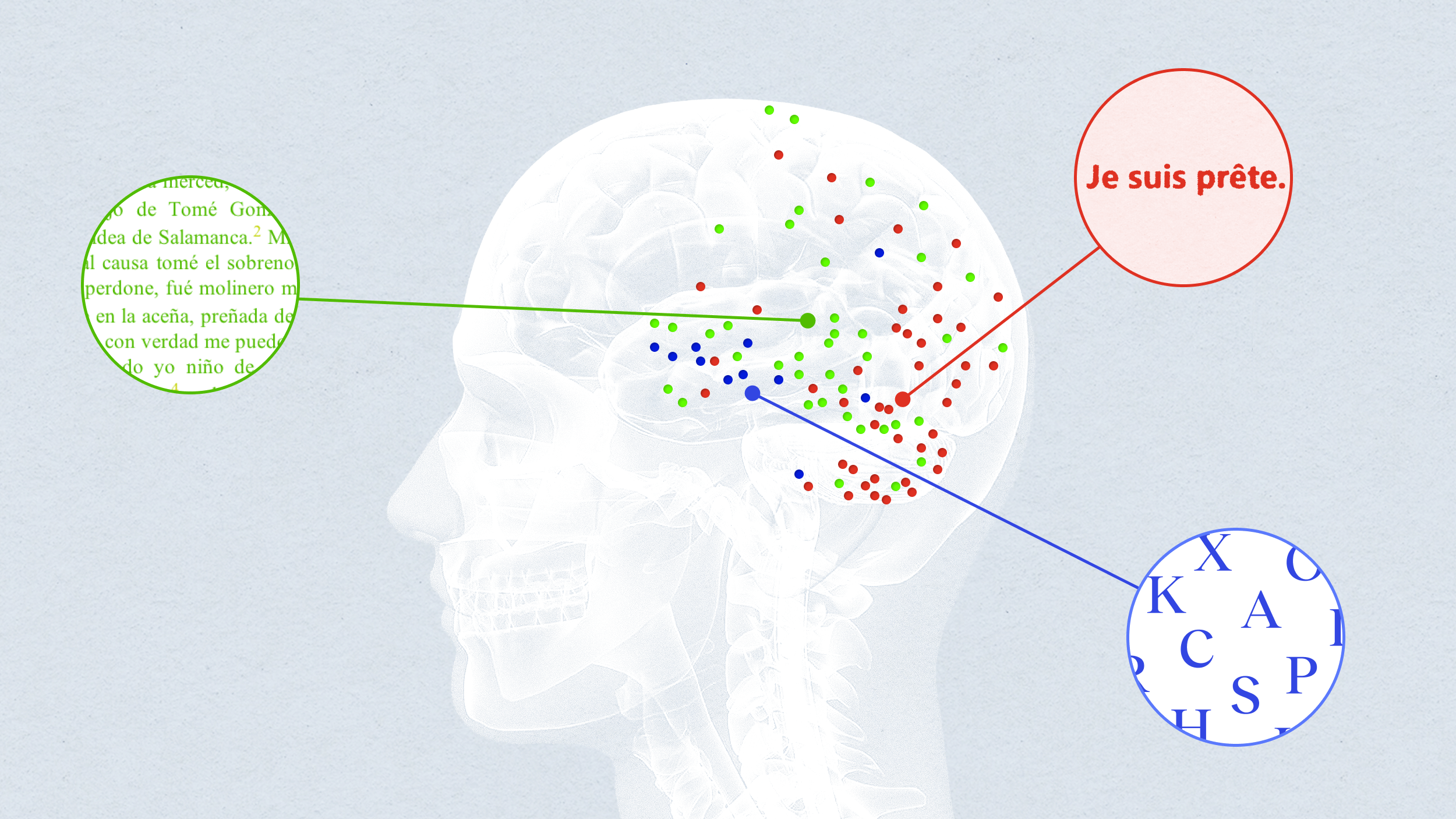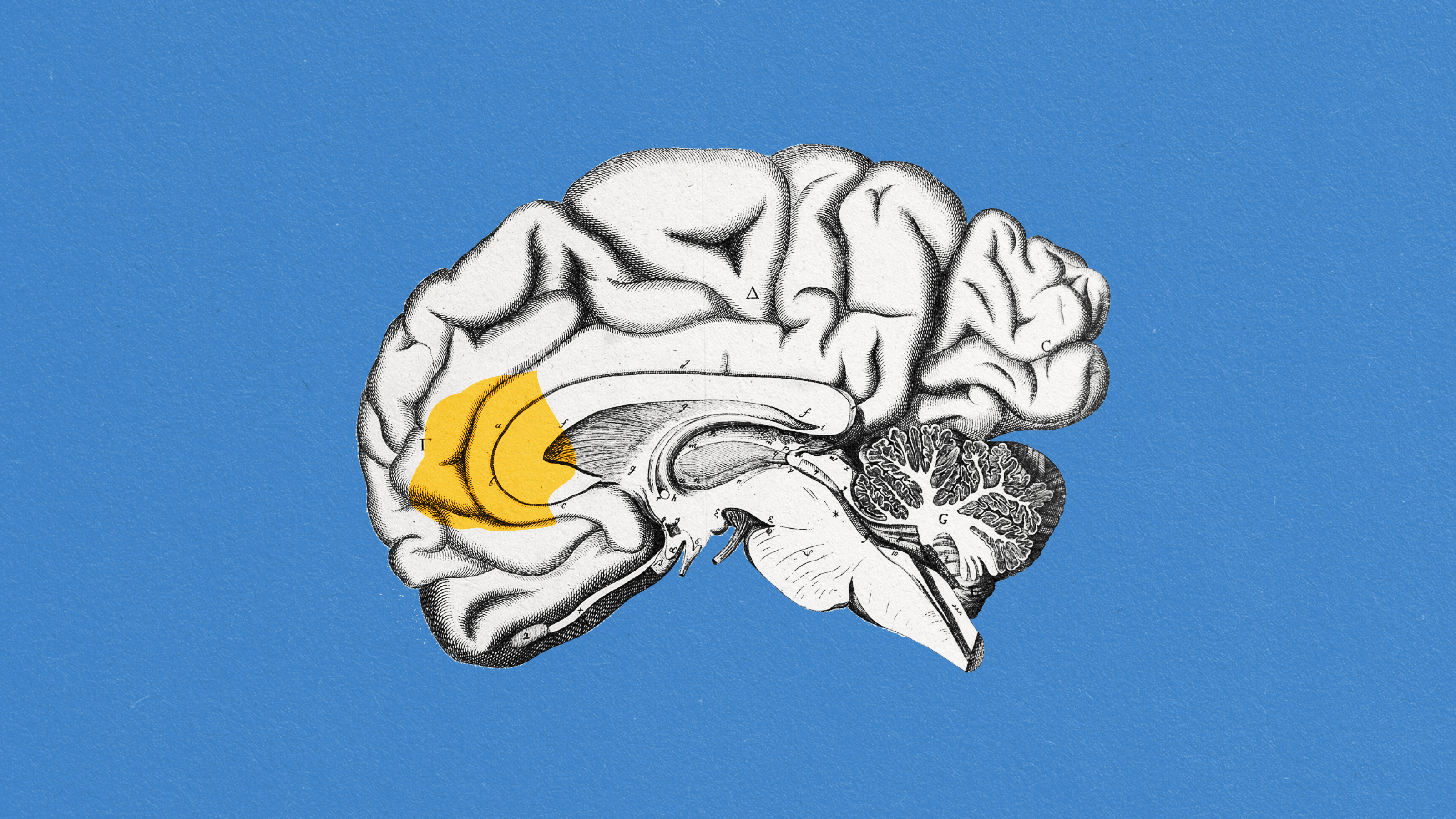Speak, Memory: Language and the Brain

In the field of neuroscience, we know far less about language than about other brain mechanisms like emotion, memory, or sensation. The inherent difficulty of studying language is that it is so closely linked to thought. There are certainly parts of the brain in which language is concentrated, but it is hard to differentiate these areas from those involved in non-language cognitive processes. Language areas also appear to be quite fluid, occupying different parts of the brain among different individuals. And because language is a strictly human phenomenon, researchers can’t use animal studies to investigate brains at the neuron level.
Paradoxically, language-specific areas were the first localized areas to be discovered in the brain. As discussed earlier in our Going Mental series, French physician Paul Broca and German neurologist Carl Wernicke independently discovered two important language areas in the 1860s. Based on their brain damage studies, a cohesive picture of language processing emerged: stimuli from the auditory cortex (speech) or the visual cortex (reading) travel to Wernicke’s area in the left posterior temporal lobe, where it is processed and comprehended. From there, a bundle of nerves called the arcuate fasiculus connects to Broca’s area in the frontal lobe, which is responsible for language production. From there, the message is sent to the motor cortex for translation either into speech or writing. This succinct language circuit was the prevailing model for over a century; the only problem is that new tests show it to be inaccurate.
“Neither nature nor the brain always fits into discrete boxes,” writes Dr. John Ratey, author of “A User’s Guide to the Brain.” “Recent MRI and PET studies and highly specific clinical tests of language abilities and impairments show that the ability to move the face and tongue in the sequence necessary to produce speech sounds like ‘da’ and ‘ta’ and the ability to hear and decode the same sounds are in Broca’s area of the brain. This indicates that speech production and comprehension are not independent systems,” he says.
Because language is so difficult to localize, scientists have focused instead on language as a means to understand into the workings of the mind. Harvard psychologist Steven Pinker has emerged as the foremost researcher in this field. Language is “a window into human nature,” he tells Big Think. “If you’re interested in general in what makes humans unlike mice and birds, language is a pretty good place to start not only because of language itself—the fact that we make noise with our mouths in order to get ideas across—but because language has to be fine tuned for the kinds of thoughts and the kinds of social relationships that humans want to share and negotiate with one another.”
In his Big Think interview, Pinker explains the focus of some of his latest research. “What I’m turning to now is the interface between language and the rest of the mind—how language can illuminate our social relationships. For example, why is so much of language use veiled, or indirect, or done via innuendo rather than people blurting out exactly what they mean? Why do I say, ‘If you could pass the salt that would be great?’ instead of ‘Give me the salt.’ Why does someone make a sexual overture in terms of, ‘Would you like to come up and see my etchings?’ rather than, ‘Do you want to have sex?'”
Pinker is also interested in why language is highly metaphorical—so much so that we often don’t realize it. “If we say, ‘I have to force myself to be polite,’ without realizing it, [we’re] using a metaphor of our natural inclination as inertia, a change in inclination as the application of force, and indeed these conflicting tendencies as different objects or people inside our skull being shoved around.” This all may seem highly academic, but Pinker believes it has important consequences for thinking about our brain. “Does it say that we actually can never think abstractly, that deep down we always have little cartoons in our head of … people shoving each other inside the skull,” he asks. “Or does it mean that we really do think abstractly, but that deep in the midst of history when the first coiner of expressions like ‘force so and so to be nice’…came about, they needed some kind of verbiage, so they cooked up a metaphor on the spot.” Probing questions like this could help better explain how the mind operates.
Pinker has also devised a new technique that may eventually yield answers about localized language functioning. He and colleague Ned Sahin recently applied intracranial electrophysiology (ICE) to measure the local field potentials (the firings of individual groups of neurons) in Broca’s area, which allows for precision on a much greater scale than brain imaging scans.
Takeaway
Can language be separated from thought? This question has complicated brain research on the most human of all functions: language. So many neuroscientists have taken a different approach rather than trying to find localized language areas in the brain, including Steven Pinker. He has pioneered a more sociological study of language and the brain, which investigates language as a means of understanding the way the mind works. But new research methods might allow us to know where individual words are stored within the 10 to 100 billion neurons that comprise our brains.
More Resources
—”The Logic of Indirect Speech,” (2007) co-published by Pinker in the journal PNAS [PDF]
—”Sequential Processing of Lexical, Grammatical, and Phonological Information Within Broca’s Area,” (2009) co-published by Ned Sahin in the journal Science [PDF]





